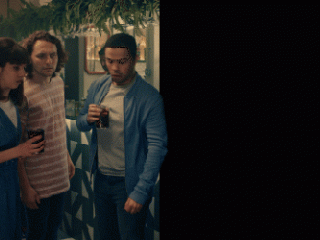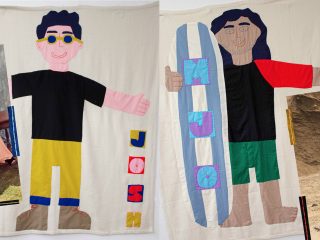Each week, we ask readers of The Drum – from brands, agencies and everything in between – for their advice on real problems facing today’s marketing practitioners.
TikTok. The crumbling of the cookie. iOS privacy updates. Change is one of the few constants in marketing, with new technologies, media opportunities and risks arriving frequently. Many brand teams look to agency and tech providers to keep on top of those trends, meaning agencies need to keep their clients educated on the latest need-to-know developments. So, what’s the best way to keep your marketing clients in the loop?
How do you solve a problem like… keeping clients up to speed?

James Caig, head of comms strategy, Droga5 London
Like any form of education, it’s best as a two-way process, with a mutual ambition. Clients are rarely ‘empty vessels’ waiting for the latest fads, so agencies that listen, filter and structure their ‘lessons’ are already adding value. Landscape developments are a constant – they should crop up as part of campaign development. But more profound shifts warrant proper attention. Focus on emergent audience behavior, not just technical innovation, and put it in a cultural context. What’s the scale, meaning and response to what’s happening? Define the approach – and the learning opportunity – and you’ll create the conditions for better briefs.

Laura Jordan Bambach, president and chief creative officer, Grey London
It is not about educating our clients at all, it’s the partnership we build with our clients and how collaborative we are in finding new ways and new technologies to help them resolve their business problems. Our role as an agency is to create strong environments and partnerships that allow agency people and clients to deliver the best work together. Strong and open relationships create the most innovative work because it can only be achieved by creating a safe space for client and agency partners to be comfortable being uncomfortable.

Flaviano Faleiro, president for growth markets, Accenture Interactive
We find what works well is a hands-on approach. Education is always best when we show rather than tell. We make learning a core part of our culture – we have five regional learning hubs, 91 connected classrooms, 24,000 online courses and 2,700 learning boards. Our people are encouraged and supported through incentives to actively participate in programs each month.
We bring this learning to our clients too. They tap our expertise to learn consumer insights and can test the latest technology at the Accenture Interactive studio, Fjord design studio and Applied Intelligence innovation centre. Here clients can envision a future that pushes beyond conventional customer experience philosophy and focus instead on a new, more holistic customer-centric strategy.

Nathalie Con, vice-president, strategy director, Giant Spoon
We encourage everyone at Giant Spoon to not just read and share links on Slack, but actually do the thing. Sell an NFT (which our VP of Social did over the weekend), make a podcast (see Adlandia), or go viral on TikTok (follow @shannonfiedler13). Try something new, then pitch it. Bridge why it matters specifically for our clients, why their audience values it, and how to go about it. This knowledge manifests as ‘scoops’ (curated intelligence newsletters), immersion days, cultural dives, private IG stories, good old fashioned phone calls –whatever format gets clients most excited.

Jeremy Arditi, chief commercial officer, Teads
A cookieless future is fast approaching and education in that space is a real challenge for many. To support our advertiser partners with their cookieless transition, we launched a Cookieless Readiness Program providing in-depth education on the cookieless landscape, and more importantly a test and learn media activation program. The program helps advertisers reach their consumers in cookieless environments and measure results versus cookie-based environments. Seeing the actual performance rather than learning about the hypothetical performance is the best way to get up the learning curve.

Vanessa Hartley, head of social, Tribal Worldwide
Social media is one of the fastest-changing sectors in advertising – it takes dedication to stay on top of the growing number of platforms, each with new formats, features and functions. Taking clients on the journey is equally important and helps ensure they can see the value in the work we propose.
Running regular client academies and workshops is the best way to educate clients on this ever-changing landscape. Presenting case studies, demonstrating new formats, and openly discussing best practice and use cases in a relaxed environment means clients can directly benefit from specialist knowledge and absorb the latest developments in an easily digestible and relevant forum.

Dillah Zakbah, creative technology and innovation director, BBH Los Angeles
To ensure that my team has a finger on the pulse of what’s new in tech and trends, I make it a habit that we learn at least one new thing a day and share what we learn between ourselves.
Then depending on what our clients prefer, we either curate a bi-weekly newsletter or a Slack channel dedicated to sharing what’s new. It is also helpful to know what the clients are interested to keep up to date on and their pain points.
This way, we know that what we share is more effective and could start conversations and new inspirations.

LaToya Robertson, cultural strategy director, Sparks & Honey
In a historically monumental year marked by a global pandemic, social justice movements, misinformation, economic inequality, and a ballooning mental health crisis (among other key issues), uncertainty has become an inevitable and steadying force. Therefore, it is my perspective that the role of educating clients shouldn’t be viewed as a problem at all, but as a privilege. As many clients’ marketing and business strategies were deemed inadequate due to massive cultural and economic change, new opportunities for learning and un-learning have emerged. These opportunities to design a more humanitarian and equitable future are perhaps the most important lessons for not only brands, but society as a whole.

James Ross, head of planning, Syzygy
For us, continual education on market developments comes largely from keeping the clients as active participants in the solution of their own business problems. We build in quarterly innovation sessions that bring together the agency’s best minds with the client to solve particular business challenges. This level of involvement and transparency encourages the right environment for learning, and fosters better trust – a fundamental ingredient.
Having the right tools at your disposal to explain the landscape – such as Covid-19 impact trackers, e-commerce performance dashboards and product margin optimization tools – is another significant addition. Together, they ensure clients are confident in your ability to keep them well-informed and advised. More crucially, they’ll be more willing to take it on board.

Melissa Hochman, vice-president of digital strategy, Saatchi & Saatchi
When tackling new potential opportunities for clients I frame them around why clients should care instead of defining them in broad terms. TikTok doesn’t equal gen Z’s favorite platform; TikTok can equal a new way of engaging the target via edutainment. This opens the door to ‘How might we?’ instead of ‘Why?’. If it’s ‘How might we?’ we start talking about how new opportunities can solve business challenges and what the creative strategy could be. When we talk in terms of ‘How might we?’ we think up multiple approaches and hedge some bets, making it more comfortable to partake.

Faisal Galaria, chief executive officer, Blippar
AR is a hot topic for brands. They’ve seen how it’s used for social frivolity like face filters, but with tech giants announcing new AR products like glasses, they need to understand the applications and benefits of this technology. With data and privacy regulations forcing brands to find new ways to engage with consumers, we’re demonstrating to clients how AR technology can be used for real utility purposes, such as large-scale product launches – building deeper connections with consumers and demonstrating ROI with actual case studies (previous success is key) – and consultations with our strategy and tech experts.

Helen James, managing director, CPB London
There’s something quite British about how we tend to approach client education in the UK. Reserved, indirect and self-deprecating, the idea of claiming superior knowledge on subject X in front of client Y can feel very awkward. That’s probably why I find one-to-many webinars for our clients and prospects so much more beneficial than one-to-one explainers. By sharing insights with a broad group of people across the marketing community, each with skin in the game, you can also get to a collaborative and open debate where no-one feels like they’re the new kid in class.

Patrick Furse, digital director, Bray Leino
Bray Leino has an initiative called Radar where people from all parts of the business get regular briefings about new tech, emerging platforms and so on, and we talk about how they can be applied in new and exciting ways to our clients’ businesses.
We know that around 65% of people are visual learners, so from our Radar sessions we make clickable prototypes to show how the ideas work in practice. These are shared with clients for them to play around with, encouraging co-creation through feedback.

Vasuta Agarwal, managing director, Asia Pacific, InMobi
It requires time, work and energy to keep your clients abreast of the latest trend, how it applies to their context and how they can make the most of it. At InMobi, we educate clients by frequently sharing insights and conducting workshops and training through the InMobi Edge partner program for agencies and advertisers. We engage in a two-way dialogue going with key client stakeholders (be it agencies or brands) across various levels through our client services and solution teams, and partner with industry bodies such as IAB to ensure that all the high-quality, credible and valuable information is made available in the most consumable form to clients.

Ayaan Mohamud, marketing director APAC, Impact
As pioneers in partnership automation technology, we have to assume our customers ‘don’t know what they don’t know’, so we have a three-pronged approach. Firstly, it’s demonstrating the strategic big picture – the power of the partnership economy. We’ve commissioned research, and featured on industry podcasts and at events. Next, we get more granular to demonstrate the value of partnerships for growth. We partner with customers to tell their story via webinars, videos and events. Lastly, we’re launching a global Impact Academy to educate the market on the partnership channel and provide certifications for participants.
Each week, I pick a new topic for discussion. If you feel like sharing your thoughts, email me at [email protected] to be included in future editions of this series.
This article was originally posted in the Drum




